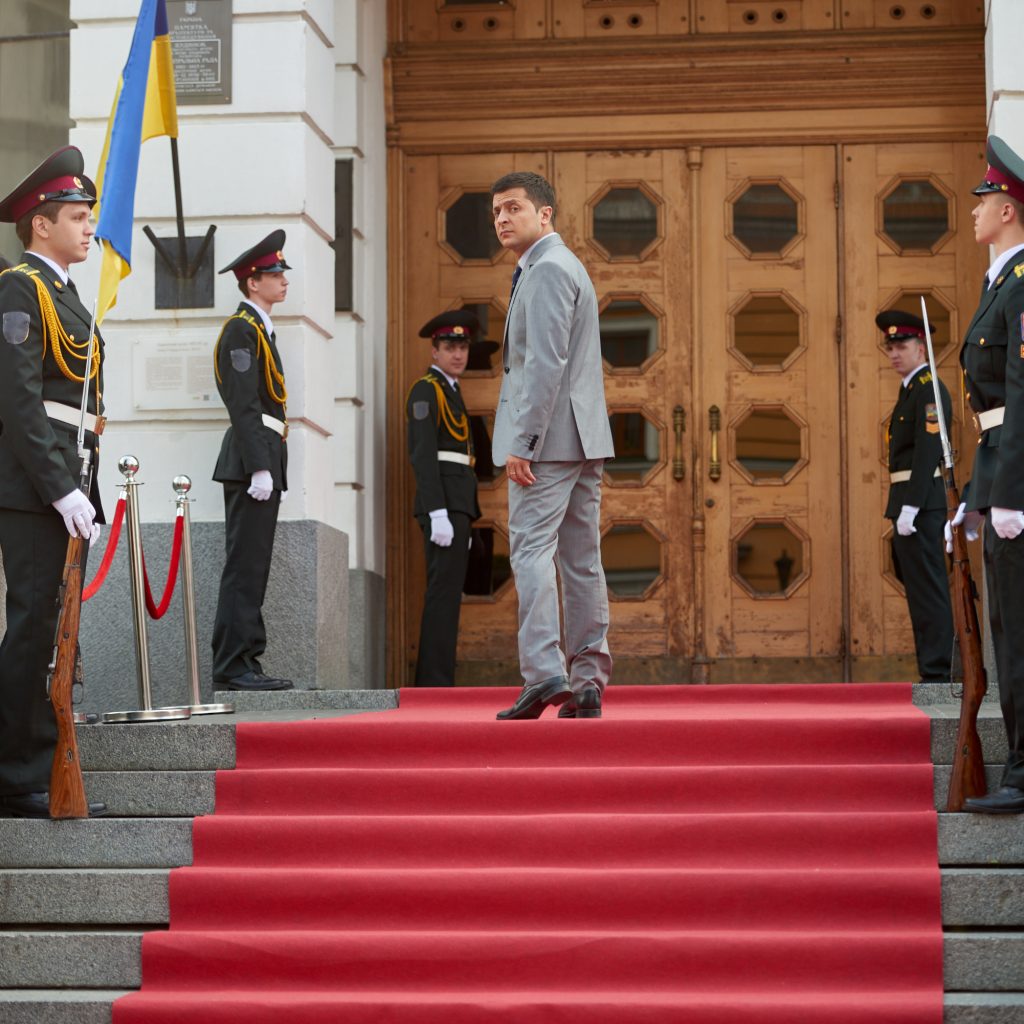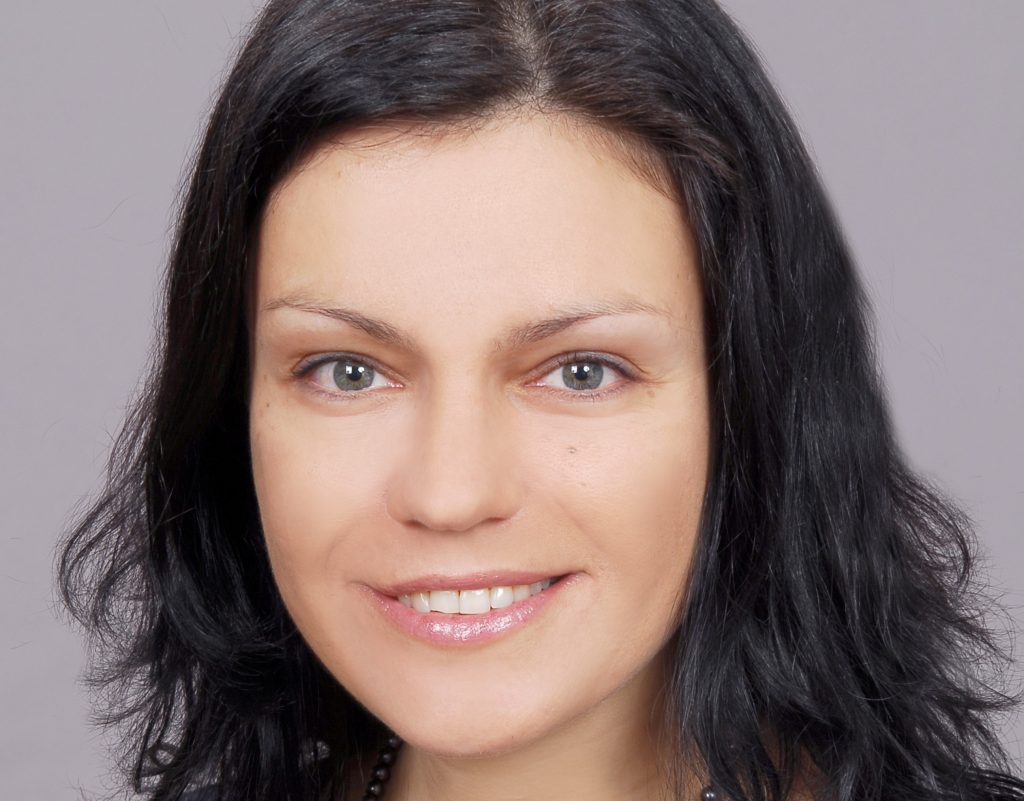Ukraine before the Elections: A Country Struggling to Reform Itself
With a record of forty-two candidates running for the top job, it remains to be seen who will become Ukraine’s next president. But will Ukrainian actors and their international partners be able to keep the country on the road to reform following the ballot?
As Ukraine’s presidential election on March 31 nears, questions swirl about how it will affect the pace of reforms in the country. Current President Petro Poroshenko was elected in May 2014 amid hopes he would withstand Russian military aggression while implementing the reforms demanded by the Revolution of Dignity and supported by international partners.
Judicial and anti-corruption reform number among the key priorities for international allies and Ukrainian civil society. Achievements so far are significant, despite resistance and drawbacks. The overhaul of Ukraine’s biggest state company Naftogaz, the clean-up of the tax system, the banking sector and the procurement system are clear examples of success. With procurement for health care alone, whereby medicine is purchased by international organizations instead of Ukrainian authorities, savings were made of up to 39 percent.
As part of public administration and civil service reform, new teams of specialists were installed in the Cabinet of Ministers and the ministries, staffed with western-educated professionals with a high level of integrity. Institutions were also established to fight high-level corruption, most notably the National Anti-Corruption Bureau of Ukraine. There was also the online declaration of assets, the Law on High Anti-Corruption Court which was given a clause that ensures the integrity of judges in the selection process. These are important achievements, but their success will only be clear when high level officials are convicted on corruption charges.
A helping hand from the EU, the IMF
After the 2014 Revolution of Dignity, Ukraine’s international partners stepped up their involvement in reforms. The EU, under its ENPI scheme (European Neighborhood and Partnership instrument), boosted its assistance from 2014 onwards to more than €200 million annually, roughly doubling the level of between 2005–13. Moreover, grants increased considerably while the total loans rose to €7.1 billion in 2014–16, according to a study by Chatham House released last summer. More is promised by 2020. The EU also ushered in important innovations, such as the creation of the dedicated Support Group to Ukraine, longer and bigger assistance programs, staff positions dedicated to reform, and extensive macro-financial assistance. With the approval of disbursement of the new Macro-Financial Assistance (MFA) program to Ukraine in November last year, the total MFA extended to Ukraine by the EU since 2014 reached €3.3 billion, the largest amount of such assistance directed at any non-EU country.
The International Monetary Foundation, meanwhile, has also played an important role, approving a string of loan programs. Conditionality on the part of international partners, linked to financial and other incentives, such as visa liberalization, played a crucial role. Reforms mentioned above were mainly achieved due to this combination of pressure and incentives with active involvement of Ukrainian civil society.
With forty-two candidates – the largest number in the history of Ukraine – running for the highest post in the country, many ask how reforms will fare after the ballot: Which candidates, should they win, would be most likely to maintain reform momentum?
Constitutional changes introduced after the 2014 Revolution of Dignity restored a parliamentary-presidential system in Ukraine, making the prime minister appointed by parliament nearly as strong as the directly elected president. In this context the composition of the new parliament, with elections scheduled for October 2019, and the ruling coalition, which will appoint the cabinet, will also be highly influential. However, Ukraine’s president still has significant leverage to impact reforms.
Comedian candidate leads in the polls
According to recent opinion polls, Vladimir Zelenski, a comedian and leader of the Servant of the People party, named after his TV show, is far ahead of other candidates with around 25 percent of popular support. The current President Petro Poroshenko and Yulia Tymoshenko, the former prime minister and presidential candidate in 2010 tend to come second/third with some 16 percent of support each. Less successful candidates are Yuriy Boiko, former Vice Prime Minister and Minister of Fuel and Energy during the presidency of Viktor Yanukovych and Anatoliy Hrytsenko, former Minister of Defense, who is considered to represent a “democratic camp” without oligarchic backing and Oleh Liashko from the Radical Party. Polls suggest they will corner between 6 and 10 percent of support. Hrytsenko’s popularity might grow, as the mayor of the city of Lviv and leader of the fourth largest parliamentary faction Andriy Sadovyi announced in early March that he terminates his candidacy to back up Hrytsenko.
The programs and public statements of these candidates are not elaborate on judicial reform or fighting corruption. In this respect, a coalition of civil society organizations has published a justice reform agenda with a list of questions, calling on the presidential candidates to outline their vision and plans.
Significantly, the majority of candidates did not disclose the sources of funding for their campaigns, although experts claim that the strongest candidates would have to invest some $80-90 million, whereby half of this money will not appear in the campaign budget, as they are from shadow sources. At the same time, there are many indications that oligarchs are behind some of the candidates. Zelenski is believed to be linked to Ihor Kolomoisky, while Tymoshenko was seen meeting Viktor Pinchuk several times; Poroshenko has funding of his own, while Boiko is linked to Dmytro Firtash. Apart from the latter, these oligarchs are among the ten richest Ukrainians. The analysis of broadcasting on central TV channels belonging to these oligarchs confirms the links between certain candidates and oligarchs.
In other words, in this electoral cycle we are unlikely to see a renewal of the political system, with politicians running with genuine reform agendas, rather than representing powerful economic interests. Yet, the pace of reforms will depend less on a particular candidate wining presidential elections and more on sustained civil society control and Western pressure. As the Bertelsmann Transformation Index (BTI) 2018 Country Report on Ukraine put it, “although Ukraine made important breakthroughs in its reform process, thanks to progressive pressures from inside, below and outside, the achievements so far are not sustainable and need to be defended every day”. It will only be through ongoing pressure and the daily hard work of reform-minded actors that a new president will be forced to take reforms seriously.
First published by the EU Observer.

